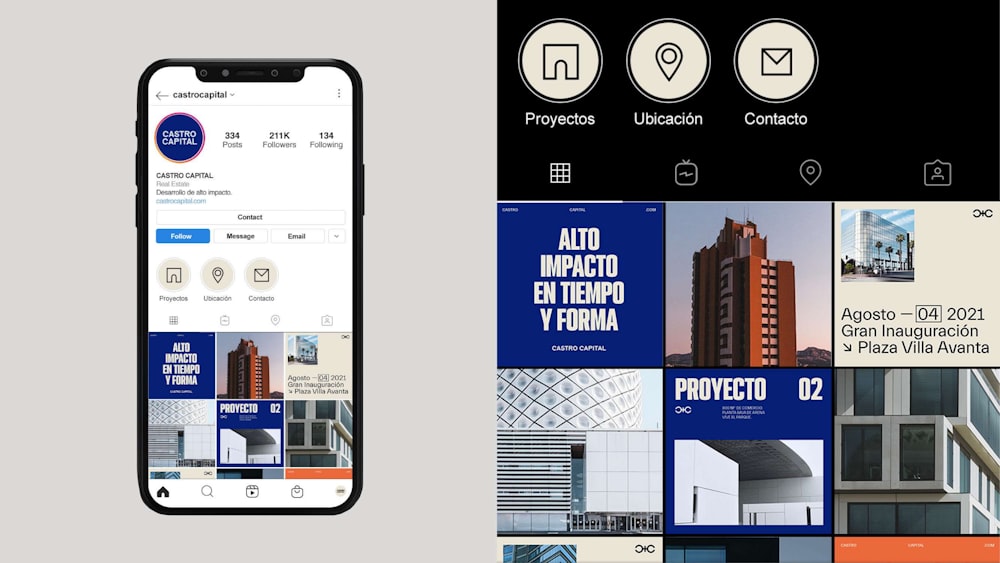Mobile app vs website - 10 reasons why a mobile app is a better option

The use of mobile applications is growing yearly, and they are an increasingly popular way to manage interactions between consumers and businesses. Mobile application development is an attractive option for companies, as consumers are constantly spending more and more time on mobile applications.
Consumers prefer mobile apps over websites because of better user experience, speed, additional features, and offers. Companies earned more than 460 billion dollars from mobile applications in 2019, and the amount is predicted to grow to around 950 billion dollars in 2023.
For these reasons, the "mobile app vs website" question will inevitably come up for every company, probably sooner rather than later.
While websites are still an excellent way to reach customers, a mobile app offers many unique benefits.
In this article, we will examine the top 10 benefits of mobile apps compared to websites and analyze why mobile app development is certainly worth the price.
💶 Why you should invest in mobile application development
In 2023, the number of mobile app users will be greater than the number of traditional laptop or desktop computer users. This is not surprising, as mobile applications are easy to use and are constantly within reach of the customer. In the application, you can easily find the desired information at any given time.
According to a recent study, 90% of the time spent on a mobile device is spent in apps and only 10% on web browsers.
In online shopping, the popularity of mobile apps becomes even more prominent: Mobile app users spend an average of 201.8 minutes per month shopping, while website users spend 10.9 minutes shopping each month.
The mobile application also beats websites with better user experience, speed, and additional features.
👉 Read more: What is a mobile application and why your brand will benefit from it
📈 Mobile app vs website: better conversion rates on mobile
Research conducted by Criteo shows that mobile applications are superior in terms of closing a deal compared to websites. App users view 4.2 times more products per session compared to mobile website users.
Conversion rates for apps are 3 times higher compared to mobile-optimized websites and up to 1.5 times higher than a desktop web browser.
👉 Read more: The 5 most important reasons why your company needs a mobile app
📲 mobile app vs website: 10 reasons why you should choose a mobile app
When thinking about the customer experience, it is clear that users like mobile applications more than websites (including mobile-optimized websites).
From a company's point of view, the absolute advantage of the mobile application is the opportunity to get more and more detailed information about their customers. Based on the information collected in-app, making targeted marketing campaigns will be much easier than with traditional data analytics methods.
In addition, there are many other reasons why mobile application development is a viable option for any company. Here are, in our opinion, the top ten reasons to choose a mobile app over a website:
(Image: Unsplash)
👍 1. Better personalization
Personalization refers to tailoring content to users based on their interests, location, app usage habits, and other similar information.
In mobile applications, personalization is easy and starts right from the moment the application is downloaded: After installing the application, users can define the settings they want based on which personalized content can be offered.
The application constantly collects information about the customer's behavior, so benefits and customized offers can be easily tailored to the customer's preferences.
(Image: Unsplash)
📝 2. Sending notifications is easy
For the last couple of decades, e-mail has been the most commonly used communication tool for businesses. And although it is still a practical tool, its open rates and click rates have been steadily decreasing.
This is where the mobile app's push and in-app notifications come into play. In-app notifications are messages that users can only receive when using the app. Push notifications, on the other hand, can be seen on the screen regardless of what is being done on the mobile device at the time the message arrives.
The ability to send users push or in-app notifications is so attractive that it is one of the main reasons why many companies want a mobile app.
(Image: Unsplash)
📱 3. Utilizing the features of the mobile device
A mobile app can utilize the built-in features of the mobile device, such as a camera, contact list, GPS, accelerometer, compass, etc.
Utilizing mobile devices’ features in the application can make the user experience interactive and fun. Creative use of features can also reduce the time it takes to complete a specific task in the application (for example, attaching a photo to a form, etc.). Ease of tends to increase conversions.
(Image: Unsplash)
✈️ 4. An app works offline
Like a website, apps also need an internet connection to deliver the best user experience, but in the battle between mobile apps vs websites, the app takes the win: It can provide essential content and functions to users offline without an internet connection.
The application also stores information on the mobile device, where it remains accessible without an internet connection.
(Image: Unsplash)
👩🎨 5. Freedom of design
Web browsers and mobile-based websites are at the mercy of the used browser's features. A mobile-optimized website still works like websites in general; by clicking buttons (back, refresh, etc.) in the browser.
Mobile apps are free from these restrictions. The application can be designed to function like the mobile device's user interface, which improves the customer experience. Gestures like "swipe", "drag", "pinch" etc. work intuitively in mobile apps.
Apps can utilize these gestures to make using the app swifter and easier.
(Image: Unsplash)
⭐️ 6. Better branding opportunities
Odds are that even if your company has a mobile app, it has a website as well. However, a mobile app differs from a website, so you can offer app users a different brand experience.
In the mobile application, you can try new branding styles that may differ from your established brand and style. The customizability of the mobile application also allows branding according to the user's preferences.
(Image: Unsplash)
⏳ 7. A lot of time is spent in applications
In the mobile app vs website competition, the mobile app wins this round 90-10 🥊 : As stated earlier, 90% of time spent on a mobile device is spent using apps, and only 10% on mobile websites.
Taking into account that an average of 4.48 hours per day is spent on mobile devices (per person in 2021 worldwide), there is a very high probability that your mobile application will be open on your customer's device at some point during the day.
(Image: Unsplash)
💰 8. More earning opportunities
Mobile application development offers many opportunities for lead generation. Mobile applications can be used to acquire both top-of-the-funnel (ToFu/IQL) and bottom-of-the-funnel (BoFu/SQL) leads.
For example, utility apps can generate top-of-the-funnel leads that can be nurtured further down the funnel over time.
(Image: Unsplash)
🔍 9. Excellent brand visibility
Once your app is installed on your customer's mobile device, they will see it daily. This everyday visibility guarantees the presence of your brand in the customer's everyday life.
Even if your customers don't actively use your mobile app, they will still be reminded of your brand: The app icon on their device can be thought of as a small advertisement for your brand.
(Image: Unsplash)
⏩ 10. Faster than websites
A well-designed mobile app usually works faster than a mobile-optimized website. Apps also store their data on mobile devices, unlike websites, which generally use servers. For this reason, searching for information in mobile applications is fast (and can be done offline).
The applications also store user data, and can proactively start tasks on behalf of users based on the data stored in the device. This speeds up the application and further improves the user experience.

(Image: Giphy)
Mobile application vs website - the verdict
A mobile application provides more information about the user compared to web-based services. It also enables direct messaging to users through push or in-app notifications, targeted advertising, data collection, and analysis, and much more based on the user's profile.
Thanks to these possibilities, the mobile application can help improve conversion rates, customer retention, and profit in a way no web-based service can.
Mobile app development is an investment that any company should seriously consider.
👉 Read more: How much does it cost to develop a mobile app
Summary
The use of mobile applications is growing yearly, and apps are becoming an increasingly popular way for B2C interaction.
Companies earned more than $460 billion from mobile apps in 2019. The earnings are predicted to grow to approximately $950 billion in 2023.
Customers' time on their mobile devices is significantly in favor of applications: 90% mobile applications vs mobile websites 10%.
Conversion rates are 3 times higher for apps compared to mobile-optimized websites and up to 1.5 times higher than desktop web browsers.
From a company's point of view, the mobile application's definitive advantage is the opportunity to collect detailed information about customers.
While websites are still an excellent way to reach customers, a mobile app offers many unique benefits:
- 👍 Better personalization
- 📝Sending notifications is easy
- 📱 Using the features of the mobile device
- ✈️ The app works offline
- 👩🎨 Freedom of design
- ⭐️ Better branding opportunities
- ⏳ A lot of time is spent in applications
- 💰 More earning opportunities
- 🔍 Excellent brand visibility
- ⏩ Faster than websites
A mobile app for your business is an investment that should be seriously and thoroughly considered.













